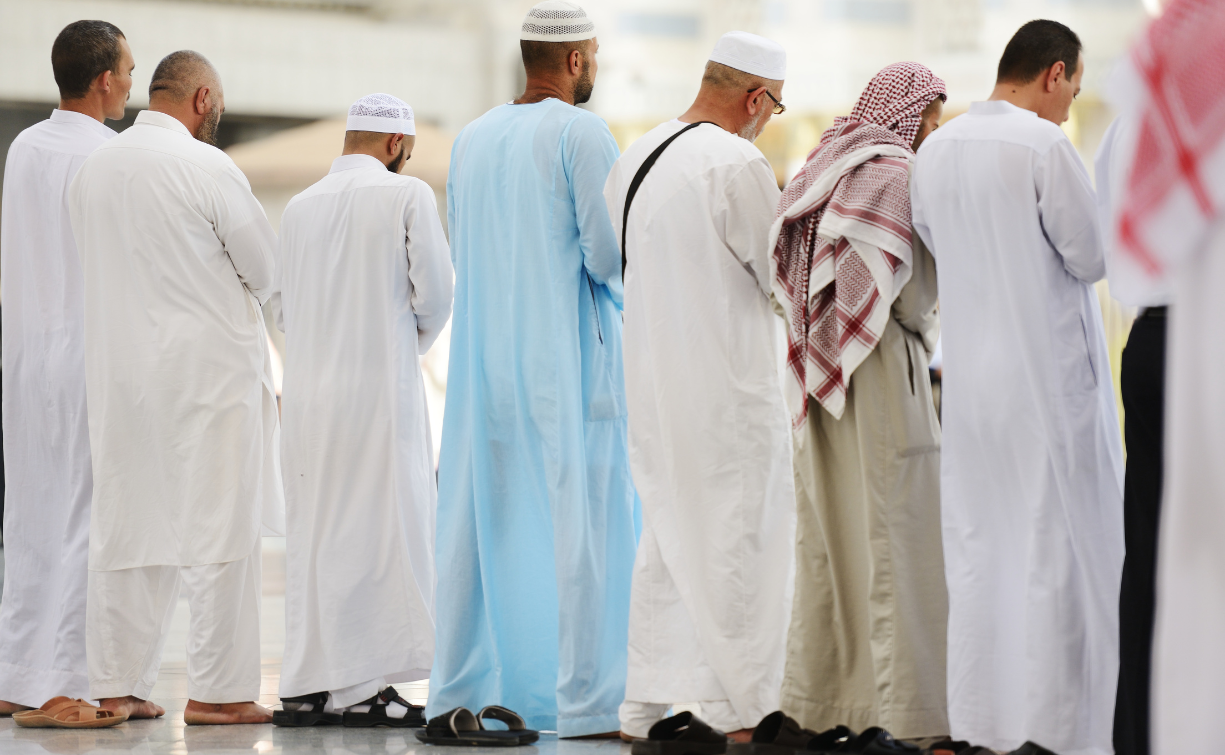The importance of unity among Muslims
One of the most pressing challenges facing the Muslim world today is the lack of unity among its diverse and dispersed communities. Unity is not only a religious obligation but also a strategic necessity for the survival and prosperity of Muslims in the face of various threats and challenges. Unity does not mean conformity, but rather mutual respect and cooperation among Muslims of different backgrounds, cultures, sects and opinions. Unity is the basis for achieving peace, justice, and development for the Muslim ummah.
Allah stated in surah Aal-Imran:
وَٱعْتَصِمُوا۟ بِحَبْلِ ٱللَّهِ جَمِيعًۭا وَلَا تَفَرَّقُوا۟
And hold firmly together to the rope of Allah and do not be divided. (Quran, 3:103)
Moreover, the Prophet (ﷺ) said, “A faithful believer to a faithful believer is like the bricks of a wall, enforcing each other.” While (saying that) the Prophet (ﷺ) clasped his hands, by interlacing his fingers. (Sahih al-Bukhari 481)
This hadith emphasizes the importance of unity, cooperation, and mutual support among believers in Islam. It encourages Muslims to build strong relationships with one another and to work together to achieve common goals.
Why aren’t all Muslims united?
After the first three generations, many factors obstruct the unity of Muslims, such as political conflicts, ethnic and sectarian divisions, ideological differences, social injustices and more. These factors create mistrust and violence among Muslims, weakening their collective strength and undermining their common interests.
How can the ummah become united?
To overcome these obstacles, we, as Muslims, need to revive the spirit of brotherhood and sisterhood that is rooted in our faith and demonstrated by our beloved prophet Muhammad (peace be upon him) and his companions. We need to adhere to the principles of the Quran and the Sunnah, which guide resolving disputes and reconciling differences. Allah states in the Quran:
إِنَّمَا ٱلْمُؤْمِنُونَ إِخْوَةٌۭ فَأَصْلِحُوا۟ بَيْنَ أَخَوَيْكُمْ ۚ وَٱتَّقُوا۟ ٱللَّهَ لَعَلَّكُمْ تُرْحَمُونَ
The believers are but one brotherhood, so make peace between your brothers. And be mindful of Allah so you may be shown mercy. (49:10)
Another very important point is that we need to be more tolerant of the different Islamic schools of thought (madhhabs) and appreciate them. How many of us have seen people argue, for example, in Ramadan whether we should pray 8 or 20 rakats of tarawihs? Arguing on such minor issues will not make us united.
Hence, debates about differences in the Fiqh issues shouldn’t become an argument rather they should be discussed on an academic level where the scholars can peacefully come to conclusions and wisely educate the ummah. Similarly, the hate speeches between Shias and Sunnis must stop. Many of the speeches contain lies, gossip and backbiting which are not allowed in Islam. Rather, the scholars of both ideologies should confront each other and debate nicely to clear misunderstandings and bring the truth to the table. As for the ummah, they shouldn’t believe the rumours about Shias or Sunnis unless they have verified it. Allah said in the Quran:
يَـٰٓأَيُّهَا ٱلَّذِينَ ءَامَنُوا۟ ٱجْتَنِبُوا۟ كَثِيرًۭا مِّنَ ٱلظَّنِّ إِنَّ بَعْضَ ٱلظَّنِّ إِثْمٌۭ ۖ وَلَا تَجَسَّسُوا۟ وَلَا يَغْتَب بَّعْضُكُم بَعْضًا ۚ
“O believers! Avoid many suspicions, for indeed, some suspicions are sinful. And do not spy, nor backbite one another.” (49:12)
The political effect of disunity amongst Muslims
The disunity among us is allowing the unIslamic rulers and satanic powers to take over our lands, our minds, and our cultures. When an unjust disbelieving ruler tries to oppress a Muslim country or race, the whole Muslim nation should speak up and support the Muslims to their best abilities as suggested in this hadith: “The believers, in their mutual love, compassion, and sympathy are like a single body; if one of its organs suffers, the whole body will respond to it with sleeplessness and fever.”
But that power of unity doesn’t exist today due to the internal problems we have with each other that keep us busy. As the famous saying goes, “United we stand, divided we fall.”
Division, differences, and disputes are the cause of the ummah’s defeat, as Allah says:
وَأَطِيعُوا۟ ٱللَّهَ وَرَسُولَهُۥ وَلَا تَنَـٰزَعُوا۟ فَتَفْشَلُوا۟ وَتَذْهَبَ رِيحُكُمْ ۖ وَٱصْبِرُوٓا۟ ۚ إِنَّ ٱللَّهَ مَعَ ٱلصَّـٰبِرِينَ
Obey Allah and His Messenger and do not dispute with one another, or you would be discouraged and weakened. Persevere! Surely Allah is with those who persevere. (8:46)
Who has united Muslims before?
An Islamic leader who was a role model in establishing unity among the Muslim community was Umar ibn Khattab, the second caliph of Islam. He was known for his justice, wisdom, and courage, and he used these qualities to guide the Muslims through many challenges and crises. He expanded the Islamic state to include vast territories, but he also ensured that the Muslims remained faithful to the teachings of the Quran and the Sunnah of the Prophet Muhammad (peace be upon him). He consulted with the companions of the Prophet and the scholars of Islam on various matters, and he respected their opinions and differences. Umar ibn Khattab was a leader who strove to uphold the principles of justice, equality, and brotherhood among people. He was a unifying force for the Muslim ummah, and his legacy is a source of inspiration and guidance for Muslims until today.
Conclusion
We need to promote dialogue and understanding among ourselves, respecting the diversity within the framework of Islam. We need to work together for the common good of the ummah, promoting values such as compassion, justice, tolerance, and peace. Finally, we need to pray to Allah to unite us, make us strong, and let us be the winners over the disbelievers.





